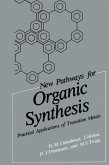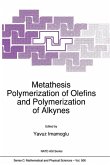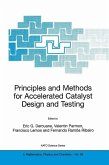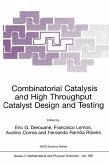David Cole-Hamilton and Robert Tooze (Editors)
A volume in the Catalysis by Metal Complexes book series
This book looks at new ways of tackling the problem of separating reaction products from homogeneous catalytic solutions. The new processes involve low leaching supported catalysts, soluble supports such as polymers and dendrimers and unusual solvents such as water, fluorinated organics, ionic liquids and supercritical fluids. The advantages of the different possibilities are discussed alongside suggestions for further research that will be required for commercialisation. Unlike other books, in addition to the chemistry involved, the book looks at the process design that would be required to bring the new approaches to fruition. Comparisons are given with existing processes that have already been successfully applied and examples are given where these approaches are not suitable
The book includes:
New processes for the separation of products from solutions containing homogeneous catalysts
Catalysts on insoluble or soluble supports - fixed bed catalysts - continuous flow or ultrafiltration
Biphasic systems: water - organic, fluorous - organic, ionic liquid - organic, supercritical fluids (monophasic or biphasic with water, organic or ionic liquid)
Comparisons with current processes involving atmospheric or low temperature distillation
Consideration of Chemistry and Process Design
Advantages and disadvantages of each process exposed
Consideration of what else is need for commercialisation
This book is an invaluable resource for industrialists in the chemical and pharmaceutical industries, particularly those involved with improving environmental impact of current or future processes. It is also a useful resource for academicswho wish to apply homogeneous catalysis to solving real problems and for advanced undergraduate and postgraduate courses in catalysis.
If you are an industrialist interested in cleaner, cheaper synthesis, an academic interested in applying homogeneous catalysis as a synthetic methodology, or a practitioner looking to solve real technological problems then this book is for you.
Dieser Download kann aus rechtlichen Gründen nur mit Rechnungsadresse in A, B, BG, CY, CZ, D, DK, EW, E, FIN, F, GR, HR, H, IRL, I, LT, L, LR, M, NL, PL, P, R, S, SLO, SK ausgeliefert werden.









